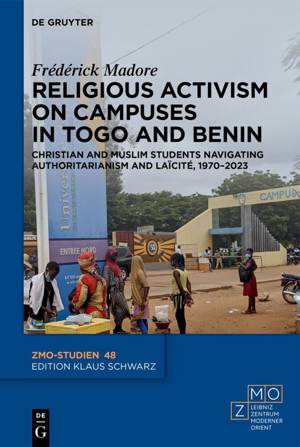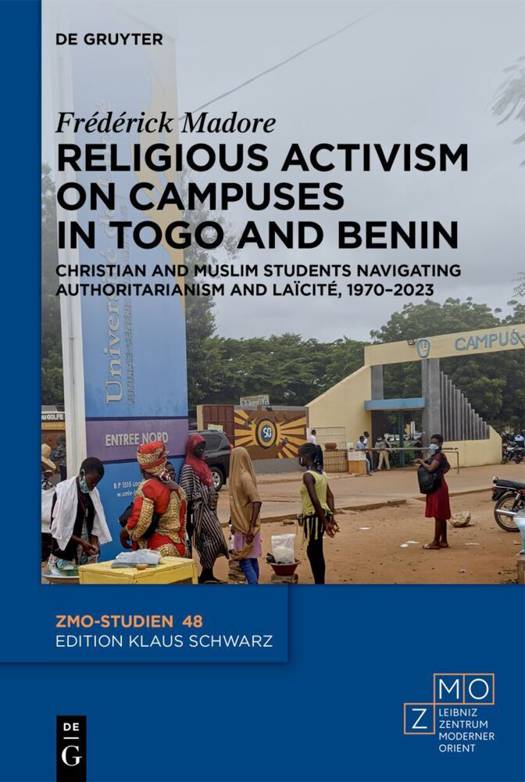
- Retrait gratuit dans votre magasin Club
- 7.000.000 titres dans notre catalogue
- Payer en toute sécurité
- Toujours un magasin près de chez vous
- Retrait gratuit dans votre magasin Club
- 7.000.000 titres dans notre catalogue
- Payer en toute sécurité
- Toujours un magasin près de chez vous
Religious Activism on Campuses in Togo and Benin
Christian and Muslim Students Navigating Authoritarianism and Laïcité, 1970-2023
Frédérick MadoreDescription
The interplay between religion and student activism at the universities of Abomey-Calavi (Benin) and Lomé (Togo) has often been overlooked, although faith-based organisations and student unions have coexisted since the 1970s. Based on interviews with different generations of activists, this book uncovers the neglected history of Christian and Muslim student associations on these campuses, originally strongholds of leftist and secular ideologies. It analyses the emergence of these groups under a Marxist-Leninist regime in Benin and a one-party dictatorship in Togo, and explores the implications of growing religiosity for these public universities as secular institutions.
The history of these associations reveals the campus as a microcosm reflecting wider national socio-political life, while also highlighting the importance of translocal factors in shaping the internal dynamics of these groups. Amidst the massification of university enrolments and rising graduate unemployment, faith-based associations have come to provide more than religious guidance. Increasingly, they offer a "social curriculum", providing a space for socialisation and a set of skills, norms and moral values that complement the secular academic curriculum.
Spécifications
Parties prenantes
- Auteur(s) :
- Editeur:
Contenu
- Nombre de pages :
- 270
- Langue:
- Anglais
- Collection :
- Tome:
- n° 48
Caractéristiques
- EAN:
- 9783111427904
- Date de parution :
- 29-03-25
- Format:
- Livre relié
- Format numérique:
- Genaaid
- Dimensions :
- 155 mm x 230 mm







